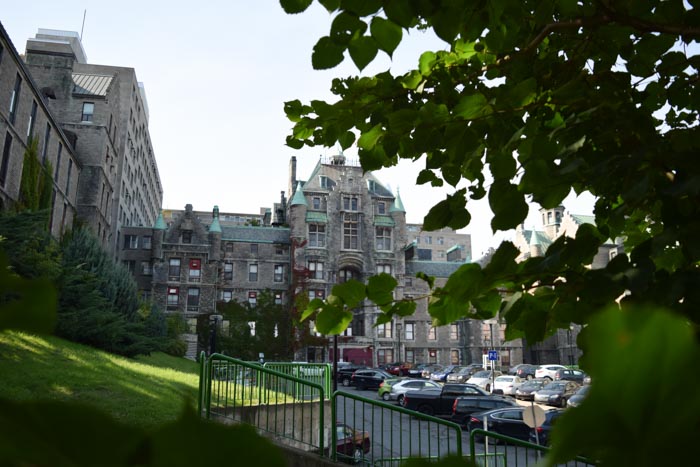Fearing the revocation of their protected status, thousands of refugees have fled the United States for Canada. While the number of refugees coming per day has dropped since August, processing times are still high, and Montreal is responding to the influx of asylum seekers with temporary housing across the city—including at the old Royal Victoria Hospital (RVH).
Following the devastating Haitian earthquake in 2010 that killed over 200,000 people, all Haitians were granted protected occupation in the United States, giving them temporary immigration status. On May 22, U.S. President Donald Trump extended the protection of Haitian refugees, which was set to expire at the beginning of 2017, through January 2018. However, in July 2017, the Trump administration suggested that it might revoke their protected status. In response, many Haitians fled the United States via the Quebec-New York border, seeking asylum in Canada.
According to the Government of Canada, the number of asylum claims jumped from 781 in June to 5,530 in August. Refugees who are waiting to be processed—thus waiting to be given asylum, access to health care, and work permits—were given shelter in buildings around Montreal, including the Olympic Stadium, RVH, and other out-of-service buildings.
The Canadian Border Services Agency (CBSA) was unprepared for the seven-times increase in the number of asylum claims. Yet Stéphane Malépart, a representative from the Canada Border Services Agency (CBSA), confirmed in an email to The McGill Tribune that appropriate resources were allocated in response to the situation and that temporary shelters are still present at the border.
“Tents have been set up at Lacolle since Aug 9 to offer temporary shelter,” Malépart wrote. “CBSA’s planning makes the most effective use of all of the resources available, including the use of overtime and temporary reassignment of resources [….] We work in close collaboration with other government departments and will draw on their resources as required.”
The Centre intégré universitaire de santé et de services sociaux de l’Est-de-l’Île-de-Montréal (CIUSSS) is responsible for the temporary accommodation of asylum seekers on the island of Montreal. Francine Dupuis, the associate CEO of the CIUSSS West-Central Montreal, expects to shut down sites where the refugees have been processed.
“We have decided that on Friday we are going to decrease the number of sites,” Dupuis said. “Right now we have a lot of different sites [in use] with a lot of space available, and we want to bring it down to maybe two or three.”
Political dimensions make the situation more complicated. In 2002, Canada and the United States signed the Safe Third Country Agreement, which declared the United States a safe country and allowed the CBSA to reject refugees from the US. As such, many of the Haitian asylum seekers fear rejection, and the Canadian government is restricted in the type and number of healthcare and work permits they can provide.
“It’s really an unintended consequence of a bad policy […] and if we fixed [the Safe Third Country Agreement], this would stop happening,” McGill Social Work Associate Professor Jill Hanley said. “As long as these people are kept in limbo and not given the rights of regular refugee claimants, it makes them vulnerable to exploitation.”
Although the number of asylum seekers in Canada has increased within the past year, these numbers are not historic for Canada, and Hanley confirmed that Montreal has adequate space to handle the influx.
“The numbers that have been coming in are actually not that exceptional in Canadian history,” Hanley said. “The numbers prior to 2001 were higher than what we have today [….] There used to be more shelters in Montreal for refugees […] but it’s not like the community centers don’t have room for them now. Maybe it is time for Canada to get back up to its old levels of refugee claims, and make it possible for people to get here and claim refugee status.”
A previous version of this article referred to Royal Victoria Hospital site as belonging to McGill. In fact, the building is the property of the Province of Quebec. The Tribune regrets this error.








